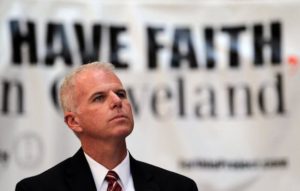Sometimes All You Have is Problems

The Rev. Dr. J. Bennett Guess
If your goal is to help people become more engaged and fulfilled in a Christian community, you don’t necessarily assign them to a board or committee. Instead, you ask them where their passions lie, what gives them energy, what serves and fulfills the desires of their best selves.
For some people, that’s meetings, agendas and minutes. But for many others, it’s direct service, such as providing actual food to people in need, helping children grow into their God-given potential, working with someone to improve their reading skills or mowing the lawn of an elderly neighbor. The list of ways to help is as long as people’s passions to make life easier for others.
It used to be that service had to fit neatly within a church’s existing ministries, but that’s been changing for some time. In fact, in recent years there’s been a stark rise in the celebration of so-called “permission-giving churches” that actively encourage people to go ahead and do the thing that God is calling them to do. Instead of dismissing new ideas, individuals are rewarded with positive reinforcement and support. The premise: Invite people to discern and follow their passions, and the rest, most likely, will fall into place.
At one permission-giving church I know, a handful of people became passionate about providing no-cost spay/neuter services to pets of low-income residents. Their concern was for both animals and people. They now operate a stand-alone clinic alongside volunteer veterinarians, helping people living in poverty care for their beloved pets, which otherwise can be very costly. To date, they’ve “fixed” more than 2,000 stray feral cats, greatly reducing overpopulation. That’s what it looks like when people follow their passion.
I love the story of CHHSM’s great patriarch, Pastor Louis Edward Nollau of St. Peter’s Church in St. Louis, who, in 1860, saw a great need for the church to respond to the cholera outbreak and provide care for the many children left orphaned by the epidemic. When one church member protested that the church lacked the financial resources, Nollau famously responded, “But we have the children!”
Sometimes, it seems, all you have is problems, and ironically that’s where the passion is discovered to confront and overcome something once thought insurmountable.
Nollau’s passion led to the formation of the German Protestant Orphans’ Home in 1861, which eventually became Evangelical Children’s Home (ECH) and, since 2011, Every Child’s Hope. It’s one of CHHSM’s oldest member organizations. But no matter its name, the mission to serve the needs of children has not changed.
CHHSM is a passion-driven movement comprised of 70 corporate members and nearly 400 organizations, communities and programs, all founded by people who saw a problem and then mustered the inner courage — and faith — to take it on. The ministries of CHHSM are old, new and varied, but they are each part of a larger movement that has passion as its core. From this place of gut-centered integrity, CHHSM derives its bold vision, inspired leaders and shared values.
It’s the reason I am so proud to have joined CHHSM this past month as its vice president, after more than 25 years in ordained ministry, because I know that as long as there are problems, people of deep faith will find a way to be overcomers for goodness’ sake. That’s the vitality of CHHSM, and that’s the DNA of the United Church of Christ.
The Rev. J. Bennett Guess is vice president of the Council for Health and Human Service Ministries. He joined CHHSM’s staff in April after serving as executive minister of the UCC’s local church ministries and, prior, as the UCC’s director of publishing, identity and communication.
Join Our Mailing LIst
"*" indicates required fields
Follow on Facebook
Hoyleton’s ‘Be the Light’ Honors Volunteers, Raises $94,000 for Programming - CHHSM
www.chhsm.org
Hoyleton (Ill.) Youth and Family Services lit up the room Feb. 28 during its 42nd Annual Hoyleton Honors celebration. With the theme of “Be the Light,” Hoyleton highlighted the numerous ways the o...